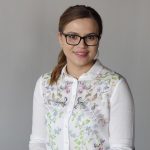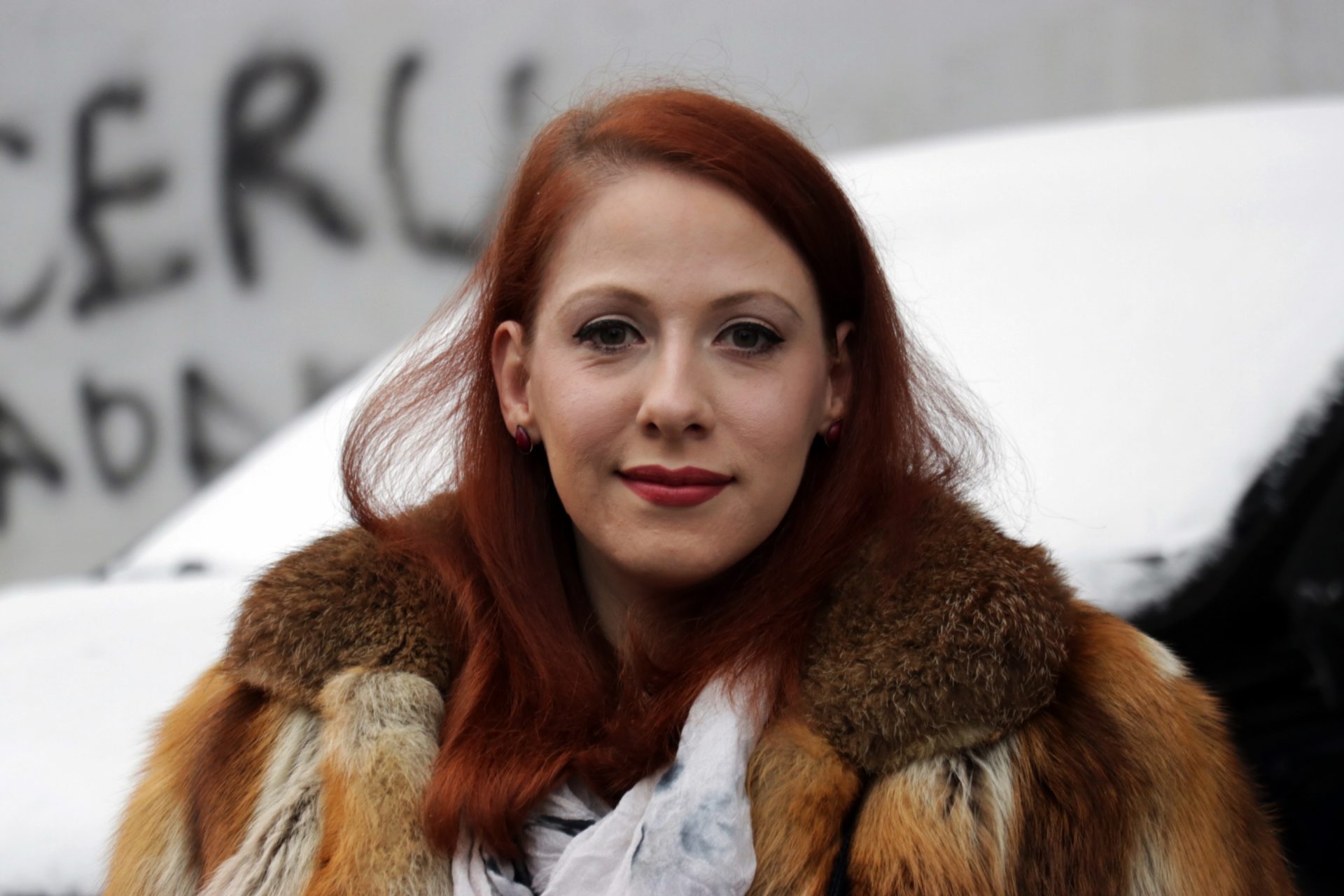
Merima Dervović from Visoko is a student of the Faculty of Philosophy, Department of Italian Language and Literature and is a person living with a disability. Merima’s primary goal is to initiate an open dialogue about the prejudices against disabled people and the challenges they face in society.
“As a person in a wheelchair, I think that these difficulties can be divided into the physical barriers disabled people face and the perception that society generally has towards the disabled. The physical barriers, such as the inability to enter a store, institution, theater, museum, or library, are generally more obvious and disrupt our everyday lives. As far as the perception that others have towards me goes, this is a much more subtle difficulty. People in wheelchairs are seen as “weaker” and “less competent” than people who do not have any physical handicaps,” Merima explains in an interview with Balkan Diskurs.
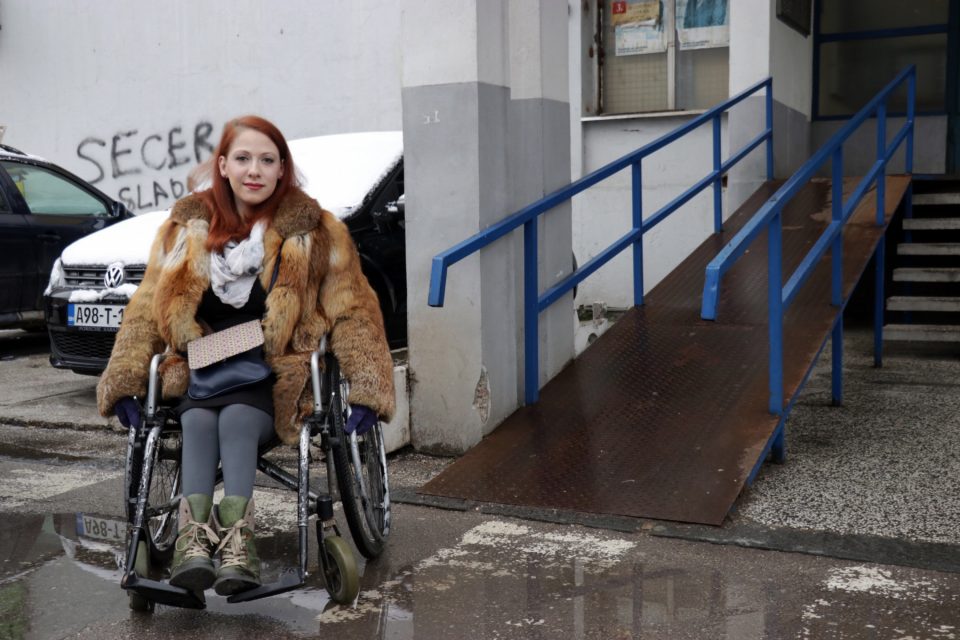
Awareness of Others’ Differences
The notion of disability is fairly broad and includes persons with intellectual disabilities, visual and hearing impairments, mobility problems, and other issues that affect a person’s ability to perform the daily activities of life. The United Nations Convention on the Rights of Persons with Disabilities speaks of what state parties should do to ensure that persons with disabilities have equal rights and freedoms that belong to all people.
“Not everyone has a developed an awareness towards those that are different from themselves. I learned to ignore comments and weird looks but that doesn’t mean I don’t notice or get irritated by them,” Merima says.
She points out that she has never been in a situation where she was mocked or pushed aside, but when it comes to “bad” behavior towards her she says that it’s primarily people’s unnecessary comments or attitudes.
“It’s understandable and I think we all struggle with certain difficulties in our own ways. I know individuals who have started organizations that greatly help people with disabilities and raise awareness about the disabled in Bosnia and Herzegovina, which is very important. Often, the most difficult kind of “struggle” is simply to live an active life – to be part of society, to get out of the house, and to be present. It is a more subtle kind of struggle to show that it is possible to be a quality member of a society that has a lot to offer. This struggle is an everyday occurrence and requires patience and a solidly built character and attitude,” Merima says.
Opportunities in BiH
In every segment of life, it is important to have the support of certain institutions. Certainly, family and friends are an especially important factor regarding the quality of life itself.
“Support is very important, especially when it comes to educational institutions. There is a very high percentage of children and young people who don’t have access to education because there are physical barriers that sometimes seem too formidable. I was fortunate that the individuals in the high school I attended had the desire to solve problems related to physical barriers. Thanks to them, I didn’t have a problem with these barriers, but in most situations, that’s often not the case. Family and friends are the pillars of a quality life and I have the kind of family and friends who see my disability as a condition, not a problem,” Merima says.
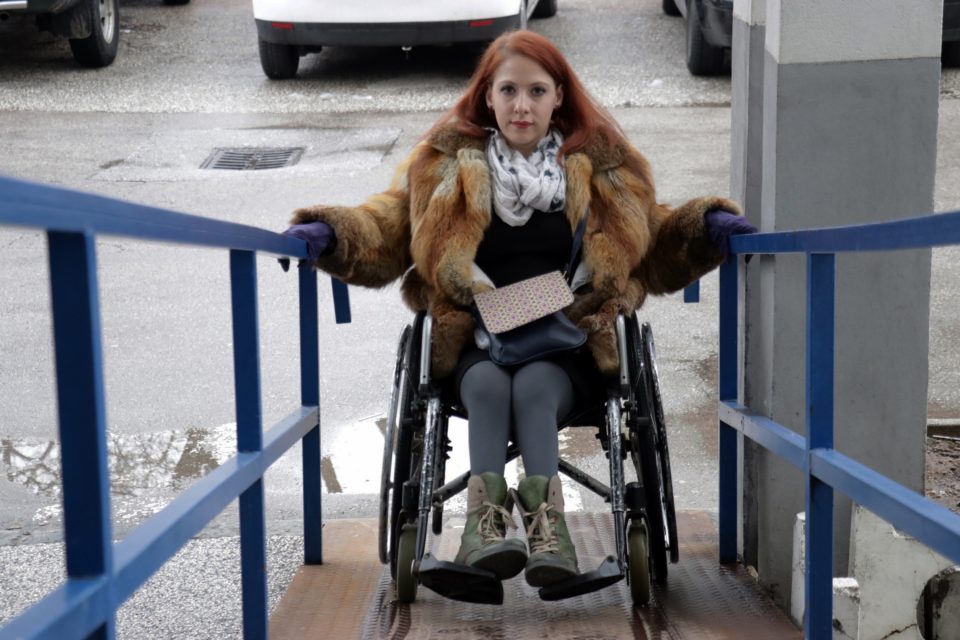
There are many associations in BiH that are trying to make a real change towards improving the standard of living for people with disabilities. These organizations can make certain changes individually, but support from the state and other institutions is needed. Merima considers one of the most important aspects of these associations the fact that they are initiating a dialogue on topics associated with disabled people and the challenges they face.
However, there are other problems that must be addressed such as architectural barriers, barriers to employment, and the barriers that exist in people’s minds. The rights of people with disabilities are regulated by the Law on the Basis of Social Protection, Protection of Civilian Victims of War and Protection of Families with Children. Among those basic rights regulated by the aforementioned law is the priority of employment.[1]
Young people, in general, have a problem finding employment nowadays, but, whether they are disabled or not, there are opportunities out there.
“I’ve had good experiences regarding work and I never noticed if my employers or my colleagues looked at me in a “different” way. I do still believe that prejudices exist when it comes to finding a job, and my previous positive experiences do not guarantee that I will not encounter these prejudices in the future. It would be ideal to find a job or start my own business immediately after graduating from college. I want to have a quality life and be independent like everyone else. So far that has been possible with a lot of effort, so I am hoping for the best in the future,” Merima expresses.
Removing the Barriers
A person does not choose how they will be born, where they will be born, or who their parents will be, but every person deserves the respect of basic human rights and we must strive to eliminate barriers in all segments of life so that every public institution, organization, and public space can be accessed by all people, including the disabled.
“I think that all change comes within ourselves. We need to invest time and effort to build ourselves, our characters, and our attitudes. The world will not change, but we can change our attitude towards it. I think that a lot can be accomplished just by talking, so I always try to openly talk about my disability. Conversation is always the best way to dismantle prejudices and educate others around us. As far as people who do not know how to behave in the presence of people with disabilities, I recommend that they simply have an open-minded approach and to freely ask if there is something that interests them,” Merima says.
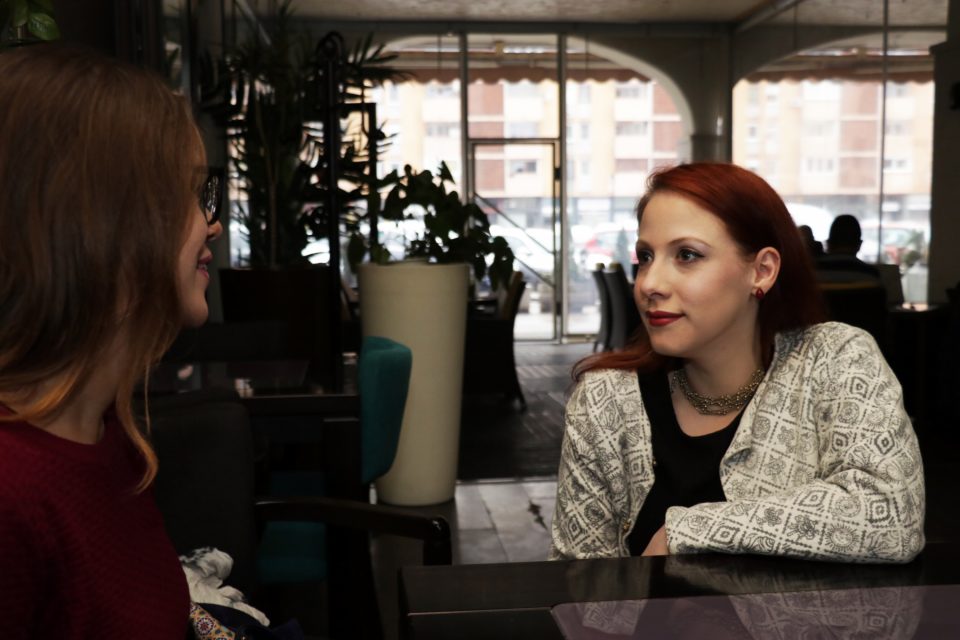
December 3rd is official the International Day of Persons with Disabilities, but this should not be the only day when we think about them, and Merima advises that we should continue to promote dialogue and educate the people around us about the importance of this issue.
[1] The law on basic social protection, protection of civilian victims of war and family protection with children, “Official Gazette FBiH” No 36/99, 54/04, 39/06, 14/09, 45/16; Training for life and work, Article 29.
This publication has been selected as part of the Srđan Aleksić Youth Competition, a regional storytelling competition that challenges youth to actively engage with their own communities to discover, document, and share stories of moral courage, interethnic cooperation, and positive social change. The competition is a primary component of the Post-Conflict Research Center’s award-winning Ordinary Heroes Peacebuilding Program, which utilizes international stories of rescuer behavior and moral courage to promote interethnic understanding and peace among the citizens of the Western Balkans.
The Balkan Diskurs Youth Correspondent Program is made possible by funding from the Robert Bosch Stiftung and the National Endowment for Democracy (NED).




